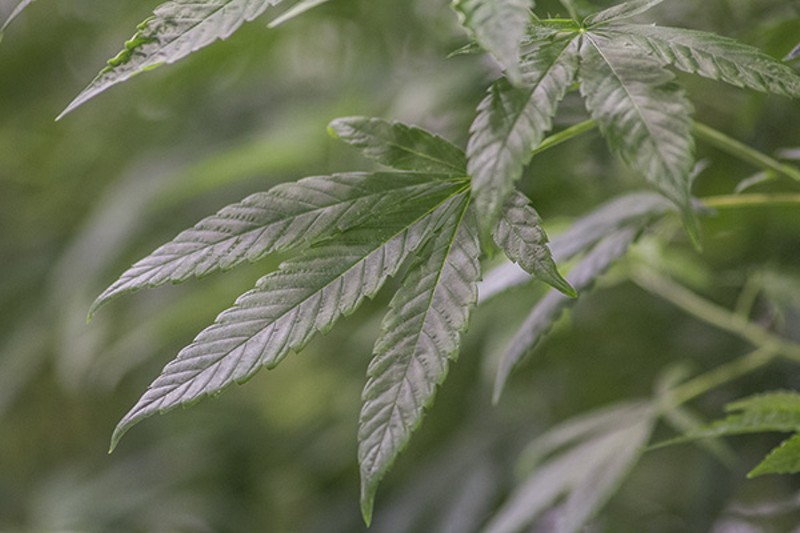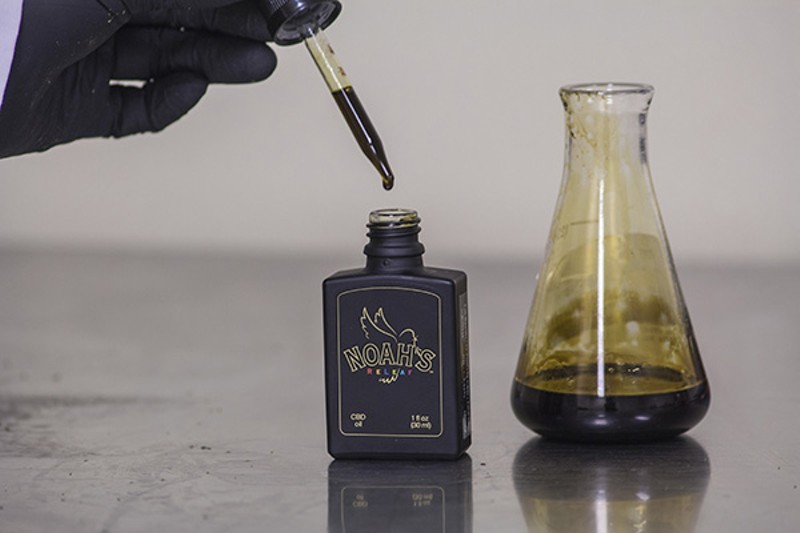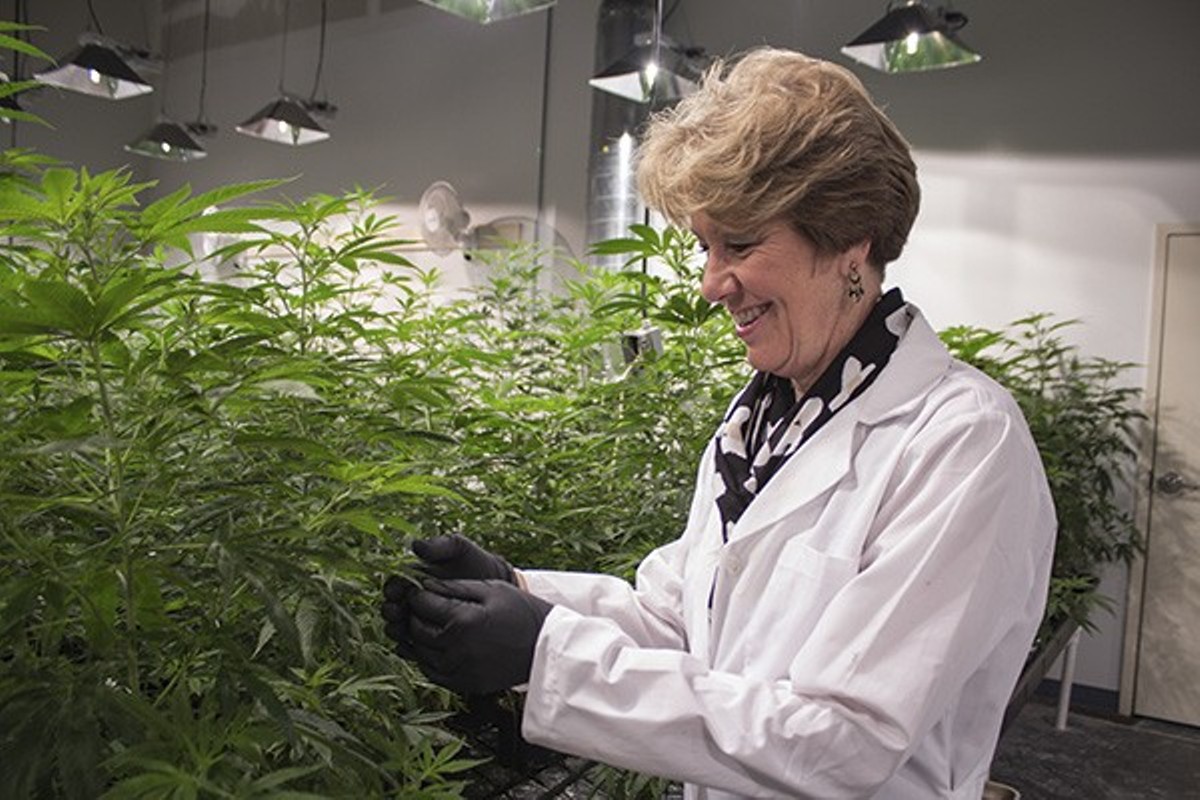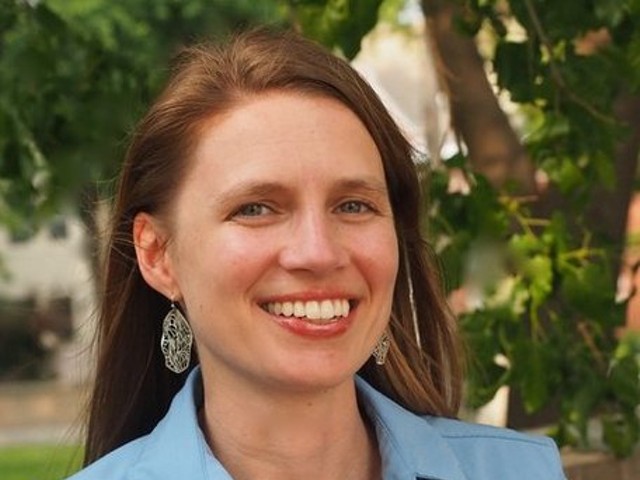
Things are at even more of a standstill in Missouri, which began its nascent medical cannabis program in July 2014, under a bill sponsored by state Senator Eric Schmitt (R-Bridgeton), whose son, then nine, suffers from epilepsy.
The measure, which then-Governor Jay Nixon signed into law, allows the use of cannabidiol oil extracted from marijuana to treat epileptic seizures that can't be effectively treated by pharmaceuticals.
But since then, the Republican-controlled statehouse has shown little interest in overcoming the fierce opposition of state Senator Bob Onder (R-Lake St. Louis) to any further expansion.
Earlier this year Onder, a physician, successfully blocked a Senate bill that would make it easier for families to obtain the CBD extract, expand the list of serious medical conditions for which it can be prescribed and boost its potency by increasing allowable THC levels.
Much of Onder's opposition stems from the fact that the federal Food and Drug Administration has not approved CBD products as a treatment or cure for any disease.
"And I do have some problems with the state eventually usurping the FDA approval process and endorsing the use of anything for a non-approved medication," he told the Riverfront Times in May, just before the end of the legislative session.
For her part, Meyers has tried to educate cannabis skeptics in the Missouri statehouse, but it's been to no avail.
"That's why I'm so frustrated with Missouri," she says. "It's as if they never travel out of the state or never read anything in the Scientific American or the Journal of the American Medical Association."
Meyers has a hard time masking her frustration with the legislative process.
"We're not asking for recreational cannabis to be approved," she says. "We're asking for a few little things to change so that seriously affected people can get access."

In the best case scenario, Meyers' efforts to succeed in the legal cannabis trade form the latest link in a long chain of entrepreneurs who, after many trials, struck it rich in St. Louis over the centuries: Marie-Thérèse Bourgeois Chouteau, the "mother" of St. Louis, who in the mid-1700s made the city a center of fur-trading; Samuel Cupples, who in the 1850s made a fortune in wooden matches; and of course Adolphus Busch, who in the 1870s revolutionized the beer industry by being the first American brewer to keep beer fresh by using pasteurization and refrigerated railroad cars.
But the viability of Meyers' business could mean things that transcend economics for people like Jen Lewis, of St. Louis.
Lewis' son Michael, eighteen, began using BeLeaf's CBD oil about a year ago. As a result, he is suffering far fewer seizures, even while being weaned off the prescription anti-seizure medications that forced him to spend much of his life asleep, Lewis says.
"It's been good. He's sleeping better. He's becoming vocal again," Lewis says. "Everybody that knows him says, 'Oh my gosh, he's awake.' And getting to know him again."
For Lewis, it is vitally important that BeLeaf keeps its door in open.
"Because Missouri is tough," Lewis says. "It's the Show Me State, right? You have to stay constant and persistent."
Many experts also believe that legal cannabis could help ease America's epidemic of opioid overdoses.
In 2015, for instance, more than 52,000 Americans died of drug overdoses, with almost two-thirds of those deaths linked to powerful opioids such as heroin, fentanyl, OxyContin and Percocet. (Ironically, the latter two drugs enjoy FDA approval.)
More people are dying today of drug overdoses than any other point in U.S. history. Indeed, drug overdoses kill more Americans than firearm homicides (more than 36,000) and HIV/AIDS during its peak in 1995 (more than 43,000).
States that have approved legal cannabis have seen opiate deaths drop by 25 percent, Meyers notes.
"So people began to use cannabis as a substitution for some or maybe even all of their opioids," she says. "And we've talked to patients who have completely weaned off of opioids and are using medical cannabis."
Meyers remains undaunted by the obstacles before her company, including the fact that in U.S. Attorney General Jeff Sessions recently announced that he plans to ask Congress to dismantle federal medical-marijuana protections that have been in place since 2014.
Still, she acknowledges the recent setbacks have been tough to bear.
"Some days it's pretty bleak around here," she says, "but then a patient shows up and you see the progress they're making and that's worth everything."
To those who've worked with Myers in the past, there is little doubt that she will succeed in the end.
Jack Thorwegen, who founded the Zipatoni agency and hired Meyers, said he has no doubt she will prevail.
"She's a very determined person," Thorwegen says. "She never gives up."
Thorwegen points to Meyers' many years of experience as a marketer.
"Marketers are risk-takers," Thorwegen says. "To some degree you never know when your next paycheck is coming. And it all relies on you. And you're only as good as your last job."
Back in the 1980s, during her Anheuser-Busch years, Meyers stood out for her "attitude and self-confidence," Thorwegen recalls. "In the beer world, back then, it was really a boys' club, in all honesty. It was unheard of for a woman at Anheuser-Busch to get to the level she got to."
And the growing popularity of cannabis means "the genie is out of the bottle," Thorwegen says. More and more states are growing dependent on the jobs and tax revenue generated by legal weed.
"More importantly, everybody knows somebody that medical cannabis will help. And that's what started the laws changing," says Thorwegen, who adds that medical cannabis helped his wife through cancer treatments and wean his son off painkillers taken for back pain.
Regardless of what happens at the federal level, Meyers is pinning her hopes on the success of a statewide initiative in Missouri.






